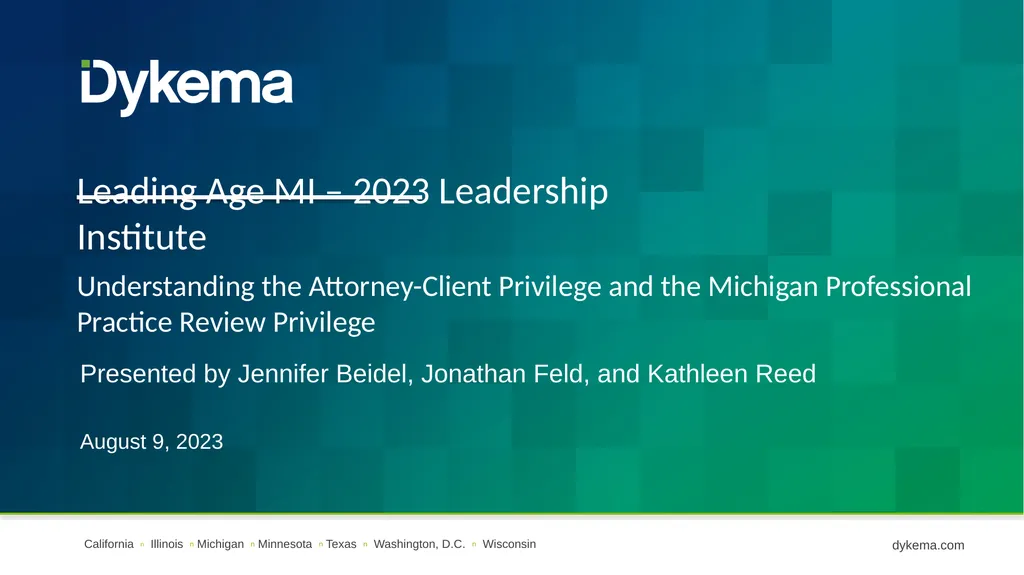
Leading Age MI – 2023 Leadership Institute
Author: phoebe-click | Published: 2025-05-29
Description: Leading Age MI 2023 Leadership Institute Understanding the Attorney-Client Privilege and the Michigan Professional Practice Review Privilege Presented by Jennifer Beidel, Jonathan Feld, and Kathleen Reed August 9, 2023 Understanding the
Download Presentation
Download the PPT/PDF: Download
Transcript:
Loading transcript�